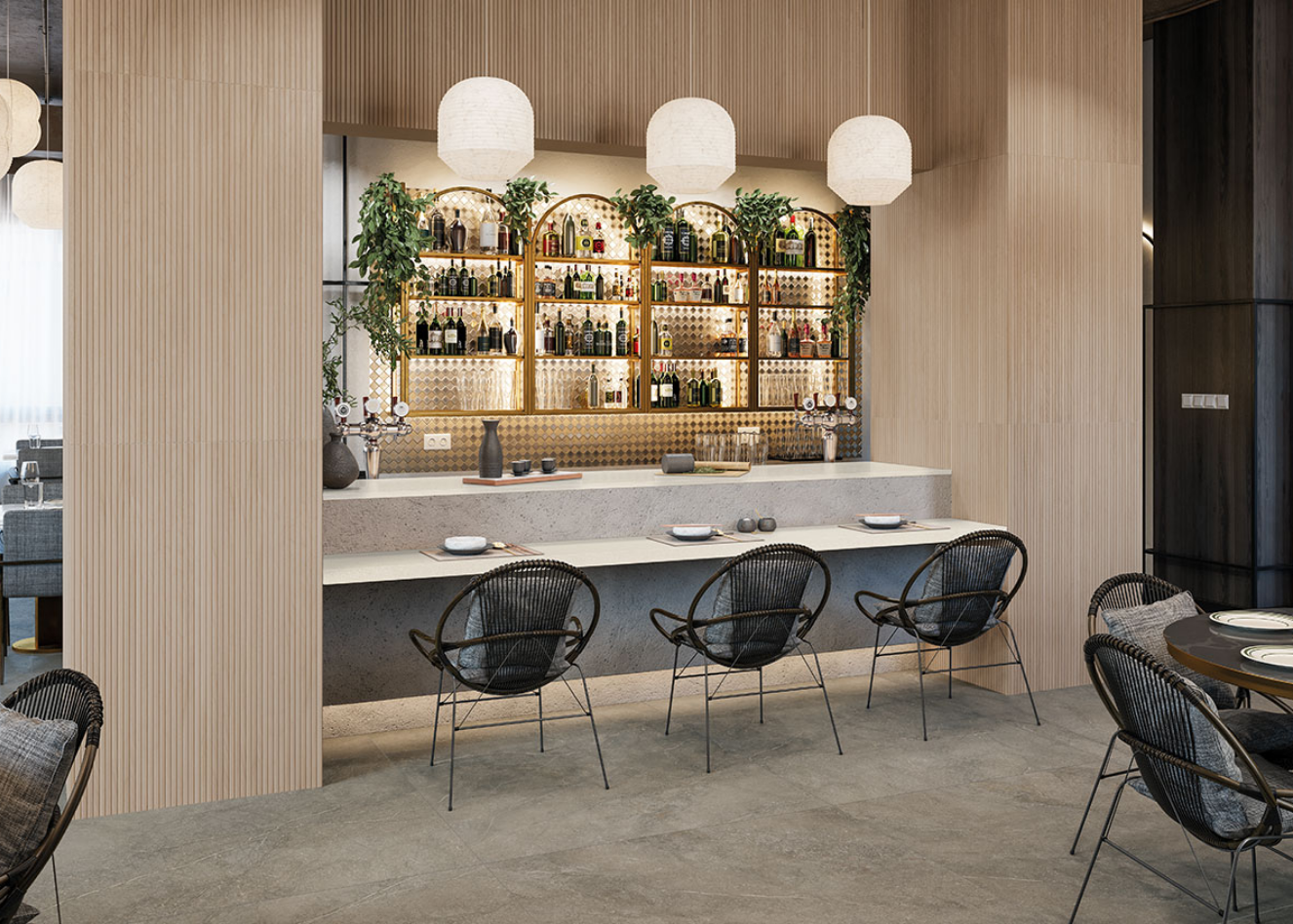Exploring MSI’S Collection Of Porcelain Wood Look Flooring And Wall Tile
September 26, 2023
Wood-look tile is one of the most beautiful and practical materials in modern home renovation. It captures the natural allure of wood colors and grain patterns, allowing you to create designs found in nature , and offers the resilience, easy maintenance, and affordable pricing homeowners are looking for.
If you fancy the functional appeal of porcelain or ceramic tile, you’re sure to appreciate the many benefits of wood-look designs in porcelain from the Everlife® Waterproof Flooring Collection. This material, 100% waterproof and resistant to stains and UV damage, offers the worry-free performance you prefer, along with the versatility to apply it to floor and wall spaces alike. How can you add wood-look tile to your home design?
Porcelain Wood-Look Tile on Floors
The look of wood can imbue your home with a feeling of luxury and create a welcoming vibe. When you choose wood-look porcelain tile for flooring throughout your home, you’ll enjoy the look you love with features that allow for placement in any room, from living spaces to functional areas like the kitchen, bathrooms, laundry room, or mud room.
There are plenty of gorgeous designs to choose from:
A Blissful Bath
Choosing porcelain tile means you can enhance your bathroom with the warm and inviting look of wood planks — and with all the functionality of waterproof tile. Havenwood Dove tile is a great choice, thanks to soft cream and beige in a casual, matte finish, brushed by a gentle grain pattern. When paired with white tile on walls and a vanity cabinet in bold, royal blue, this flooring creates a calming, spa-like space you’ll love.
Elevating a Classic
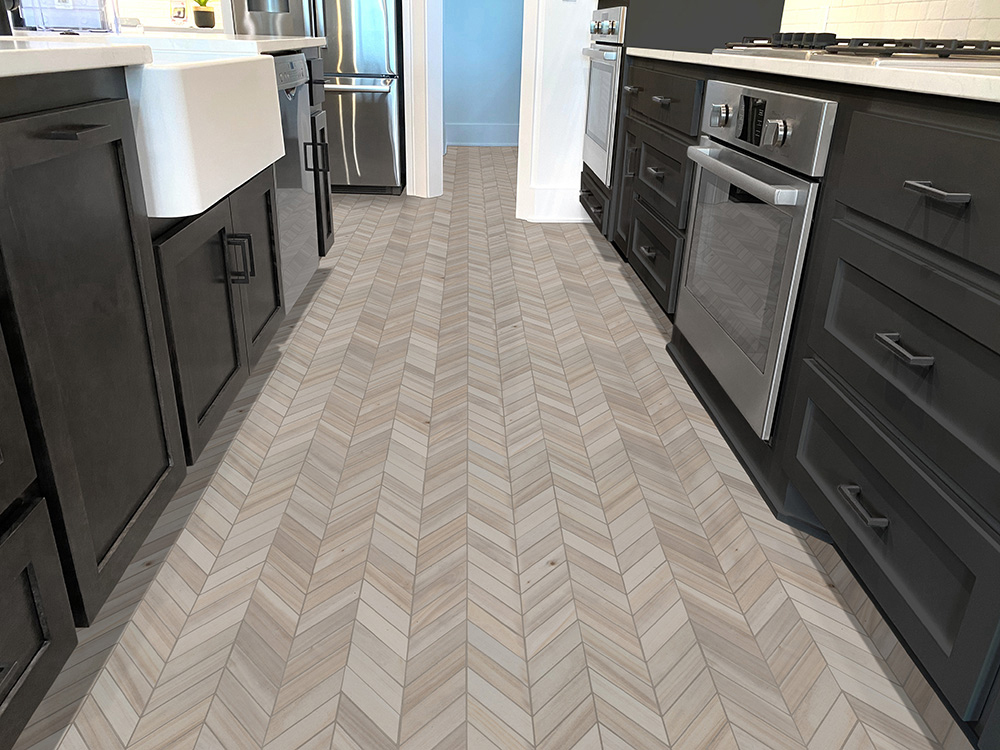 Havenwood Dove Chevron Mosaic Porcelain Tile
Havenwood Dove Chevron Mosaic Porcelain Tile
The zig and zag of a classic chevron pattern can add movement to your space, as evidenced by Havenwood Dove Chevron Mosaic tile in hues of cream and beige. If you match it with dark wood cabinets and a white tile backsplash, this flooring adds warmth and a mid-tone transition that pulls together light and dark elements in your kitchen design.
Light, Bright, and Breezy
You can achieve the stylish look of weathered hardwood flooring with Antoni Gris tile in hues of trendy, faded grays. Fine graining and variable coloration add depth and visual interest to the expanse of an open-concept floor plan or loft, perfectly complementing the industrial appeal of a whitewashed brick wall.
Dramatic Elegance
 Dellano Exotic Blue Porcelain Tile
Dellano Exotic Blue Porcelain Tile
Looking for something with a touch of color and ample drama? You’ll find it with Dellano Exotic Blue tile, featuring heavy graining in shades of steely graphite and blues ranging from cornflower to cobalt.
Porcelain Wood-Look Tile on Walls
The wood plank look isn’t exclusive to flooring; you can also use it to enhance the appeal of walls in your home, creating a unique statement that elevates your interior design. There are several great options to choose from in our porcelain tile collection.
Refined Rustic
It’s hard to deny the rustic appeal of whitewashed wood, with a bright, breezy aesthetic punctuated by peekaboo patches of dark graining that add incredible character to the overall design. Vintage Lace tile makes for a striking addition to your modern space, with a dose of traditional charm and visual texture.
A Touch of Warmth
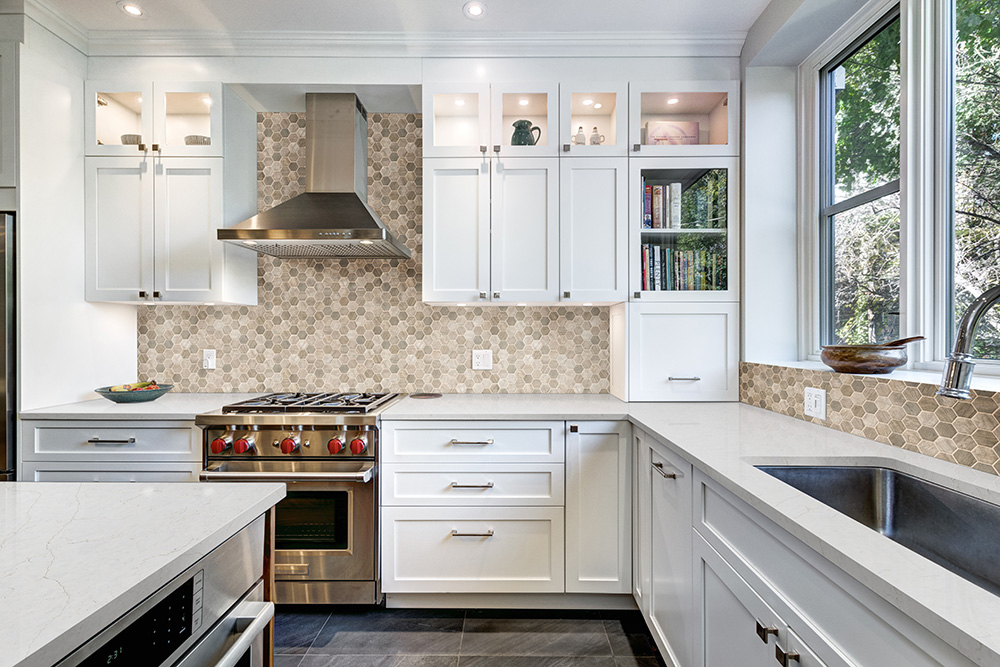 Driftwood Hexagon Mosaic Porcelain Tile
Driftwood Hexagon Mosaic Porcelain Tile
There’s a soft serenity associated with sun-bleached wood, and anyone looking to add this aesthetic to their kitchen space will surely be drawn to the subtle creams, greiges, and browns of Driftwood Hexagon Mosaic tile.
Walking into a kitchen with the geometric appeal of a honeycomb pattern and the warm hues of natural wood is like feeling a summery breeze sweeping away the cold winds of winter.
Make a Statement
 Belmond Obsidian Porcelain Tile
Belmond Obsidian Porcelain Tile
A statement wall is a great way to both draw attention in a room and define a specific area in a larger space. Belmond Obsidian tile, featuring heavy graining and the charcoal tones of charred wood, brings statement-making drama.
Zen Neutrality
Your bedroom design needs to reflect your personal tastes, but it must also facilitate restful slumber. You can achieve both goals by choosing Catalina Ice tile, in pale hues of white and light gray punctuated by delicate graining. With slightly warmer wood tone flooring, neutral linens, and hints of color in pillows and other accessories, you’ll have the perfect Zen space to help you catch your z’s.
Wood-Look Tile to Enhance Any Surface
When you choose enticing wood-look tile from our vast collection of enchanting designs, you can imbue your space with the beauty of nature and enjoy the strength, durability, and low-maintenance appeal of porcelain.
If you’re ready to update the surfaces in your home, find an authorized MSI retailer near you, visit a showroom to get started today, or conveniently contact us now via online chat.
LEARN MORE ABOUT PORCELAIN AND CERAMIC TILE
Upgrade Your Home With Porcelain Wood Look Wall Tile
From Modern To Wood Looks, Porcelain Tile Has It All!
Large Format Wood Look Tile In Coordinating Indoor/Outdoor Tile And Pavers
Weighing The Options: Engineered Hardwood Floors Vs. Wood Look Tile Planks
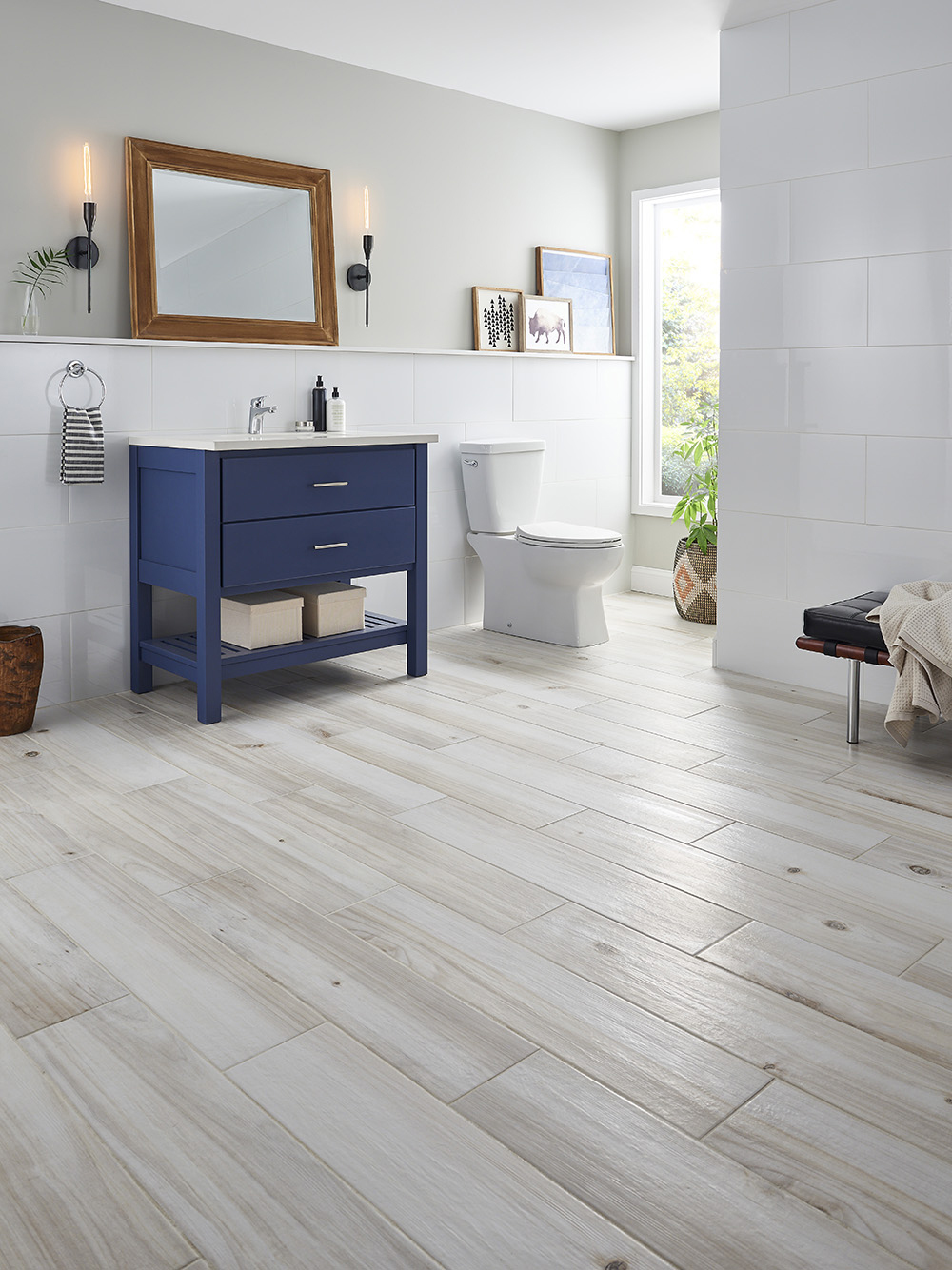 Havenwood Dove Porcelain Tile
Havenwood Dove Porcelain Tile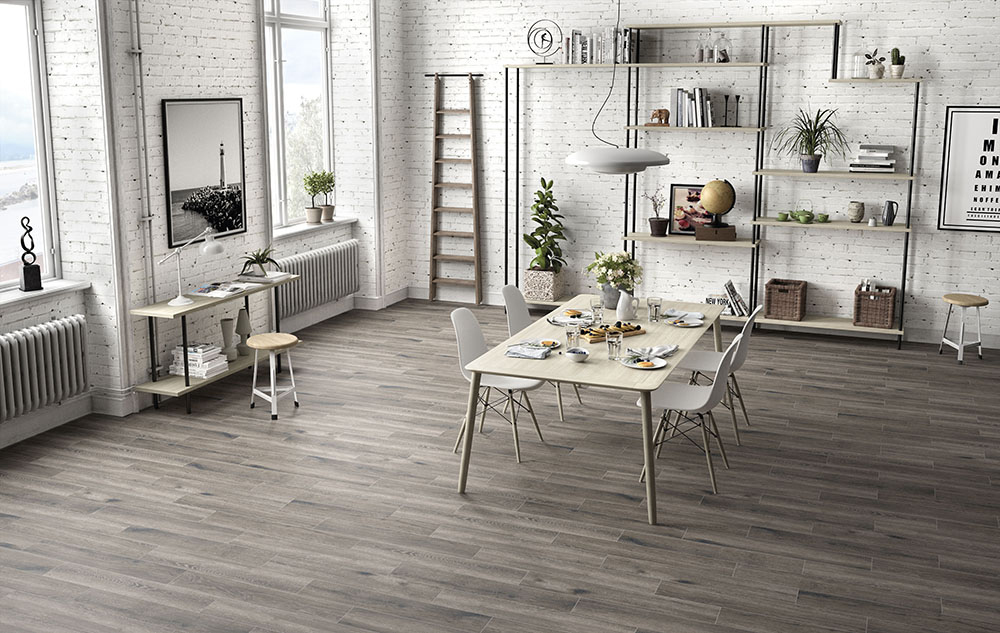 Antoni Gris Porcelain Tile
Antoni Gris Porcelain Tile Vintage Lace Porcelain Tile
Vintage Lace Porcelain Tile Catalina Ice Porcelain Tile
Catalina Ice Porcelain Tile